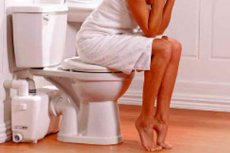Medical expert of the article
New publications
Frequent urge to urinate in women before, during and after their period
Last reviewed: 06.07.2025

All iLive content is medically reviewed or fact checked to ensure as much factual accuracy as possible.
We have strict sourcing guidelines and only link to reputable media sites, academic research institutions and, whenever possible, medically peer reviewed studies. Note that the numbers in parentheses ([1], [2], etc.) are clickable links to these studies.
If you feel that any of our content is inaccurate, out-of-date, or otherwise questionable, please select it and press Ctrl + Enter.

A process such as menstruation causes a lot of difficulties and painful sensations.
Frequent urination in women before menstruation
Frequent urination in women before menstruation is in most cases associated with natural factors and hormonal changes. But there are also more serious, i.e. pathological reasons for this phenomenon.
Let's consider possible conditions of the female body that influence the appearance of pollakiuria:
- Physiological processes - the menstrual cycle occurs with functional and structural changes in the genitals. This is accompanied by a change in hormonal levels towards estrogen or progesterone. Before menstruation, there is a sharp decrease in the level of progesterone, which leads to fluid retention in the body, which is intensively excreted by the kidneys. Against this background, the tone of the bladder may increase, which causes the urge to go to the toilet.
- Premenstrual syndrome is a complex of various disorders that affect the endocrine, cardiovascular and psychoemotional systems. Increased irritability, engorgement of the mammary glands, swelling of the extremities and face, nausea and headaches, changes in blood pressure are observed.
- Pregnancy – if a woman is unaware of pregnancy and is expecting menstruation, then dysuric disorder is considered a normal phenomenon. But it can be one of the first symptoms of conception. Also, the following may occur: increased fatigue, taste changes, scanty bloody discharge, bloating, mild nausea.
- Diseases of the urinary system - this can be cystitis, urethritis, pyelonephritis and other pathologies. The painful condition is accompanied by an increase in body temperature, painful sensations in the suprapubic area and lower back, changes in the color and consistency of urine.
- Gynecological diseases - the clinical picture depends on the type and prevalence of the pathological condition. As a rule, women complain of the following symptoms: vaginal discharge, dryness and burning in the genital tract, menstrual irregularities, pain in the lower abdomen, discomfort during sex.
- Endocrine diseases – most often, dysuric disorder is associated with diabetes mellitus or diabetes insipidus. The unpleasant condition is accompanied by changes in body weight, increased thirst, dry mouth.
To identify the cause of bladder dysfunction, you should seek medical help. The doctor will conduct a set of diagnostic measures that will help identify and eliminate the factors that caused the disorder.
Frequent urination in women during menstruation
A fairly standard situation is frequent urination in women during menstruation. This condition is associated with the separation of the functional layer of the endometrium due to a sharp decrease in the concentration of sex hormones, especially progesterone. This feature of the tissues in combination with active movements of smooth muscles causes irritation of the bladder. As a rule, the urge to pee is present only in the first days of menstruation.
There are other reasons for unpleasant symptoms, let's consider them:
- Increased fluid intake or diuretic medications.
- Emotional experiences and stress.
- Diseases of the urinary system.
- Venereal infections.
The last two factors do not disappear after the end of the critical days. Their symptoms begin to increase, forcing you to seek medical help.
- Diseases of the gastrointestinal tract (diarrhea may occur against the background of dysuria).
- Endometriosis (causes painful sensations).
- Various hormonal disorders.
- Low tone of the uterus or incorrect anatomical position of the organ.
- Cervical stenosis.
- Pregnancy, including ectopic pregnancy.
If frequent trips to the toilet continue after your period, you should seek medical help.
Frequent urination in women after menstruation
Such a problem as frequent urination in women after menstruation can occur due to such factors.
- Individual features of the body structure.
- Large amounts of fluid consumed in the last 24 hours.
- Abuse of fried, fatty, spicy or salty foods.
- Drinking alcohol, tea or coffee.
- Use of diuretics.
- Tumor lesions of the bladder.
- Inflammatory diseases of the genitourinary system.
- Urolithiasis.
- Severe stress and emotional overstrain.
- Hypothermia.
- Hormonal changes (menopause, pregnancy).
If there is no improvement in the condition within 2-3 days after the critical days and additional painful symptoms have appeared, then it is worth seeking medical help. Without timely diagnosis and treatment, the pathological process can take a chronic form, making itself known by constant relapses.

